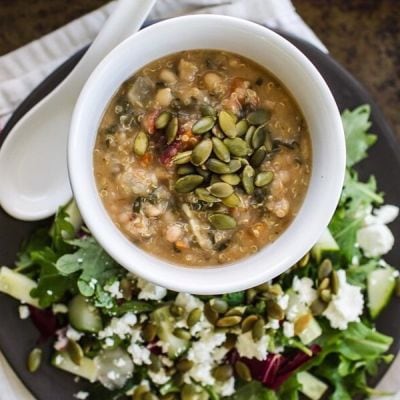“The fresh soup category has evolved significantly since we started the company,” Greg Powers told FoodNavigator-USA.
“When we launched [in late 2009] with fresh, organic, gluten-free soup, the [grocery retail] fresh soup category was only around $50-75m in annual revenue and a lot of it was private label. Today the category is north of $200m and we’ve seen some high profile brands come in such as Panera.
“But as far as I am aware we are the only dedicated organic gluten free non-GMO branded fresh soup product in the market and we’re in around 2,000 stores in chains from Target and Whole Foods to Kroger, The Fresh Market, Costco and many others.
“Retailers such as Safeway were really ahead of the game by putting soup at the front of the store, but it is still a pretty small category compared to what you see in some European countries such as the UK [which has a very mature private label chilled food market and served as a launch-pad for brands such as New Covent Garden Soup – which was acquired by Hain Celestial in 2011].”
We’ve seen a fairly significant shift in strategy from most of our retail partners
He added: “I think a lot of other retailers saw what Safeway was doing and started to embrace that merchandising strategy and you see fresh soup in the refrigerated grab & go area or in a separate standalone island at the front of store.
“We’ve seen a fairly significant shift in strategy from most of our retail partners and they have begun showcasing fresh soup as a grab and go item and they have done a lot of remodeling to pull fresh soup out to the front of the store.

“Retailers are looking at ways to incorporate fresher, healthier foods for immediate consumption (eg. lunch) or for dinner that evening.”
Sourcing organic produce: It was a struggle for a couple of years and we had to be very creative
From a sourcing perspective, things have gotten a little easier as the Boulder, Colorado-based company has grown, said Powers.
“When we were smaller, we were too large to source enough ingredients from smaller local distributors but we weren’t large enough to lock down our ingredient supply for the entire year, so it was a struggle for a couple of years and we had to be very creative. Today we can contract in advance.”
When it comes to recipe development, Boulder Organic works collaboratively with retail partners, who pay close attention to Nielsen and IRI research data to see what soup flavors and vegetables are trending, he said.
“We obviously have our own suggestions, but we also take that trend information and share recipe ideas with them.”

"You’re seeing a significant migration from the center of the store to the perimeter as people continue to look for healthier and fresher options. We launched in the winter of 2009 and we have doubled our year every year since then – with the exception of 2015, when we grew even faster – sales were up 125%, and I expect to see similar growth in 2016.”
Greg Powers, CEO, Boulder Organic Foods
Everything is manufactured in-house
Unusually, Boulder Organic manufactures all of its soups in-house, said Powers. “We looked a couple of years ago as to whether it would make sense to outsource to a co-packer, but at the same time, we were growing so quickly that it appeared that we’d continue to have to make significant investments in equipment and systems that we’d be basically buying for someone else, so we thought it just made sense to carry on doing it ourselves.

“But there are also benefits from a quality and safety perspective to own and control the manufacturing process. When you’re working with larger customers like Costco and Target, those customers also prefer that we have control over the process.”
Our biggest challenge right now is trying to keep up with demand
He added: “You’re seeing a significant migration from the center of the store to the perimeter as people continue to look for healthier and fresher options. Soup is comforting and familiar and easy for a meal – you warm it up and you’re good to go.
“If anything our biggest challenge right now is trying to keep up with demand – we’re big in the western part of the US – from California to Kansas, but this year, we’re looking to expand significantly in the east.
“We launched in the winter of 2009 and we have doubled our year every year since then – with the exception of 2015, when we grew even faster – sales were up 125%, and I expect to see similar growth in 2016.”
I have a folder with overtures from everyone from private equity groups to large CPG companies
So has Boulder Organic been fielding offers from any large suitors keen to get a slice of the action in the fresh soup market?
Said Powers: “I have a large folder with overtures from everyone from private equity groups to large CPG companies. But I can tell you that we don’t really have any interest in that right now.”
